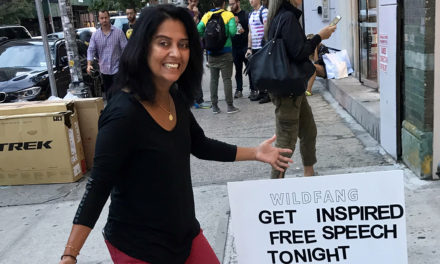The first Christmas after my father died, my mother, husband, and I attended a holiday candlelight procession at the cemetery where he’s buried. For us and so many other families, the evening was more about joy than sorrow, a way to include our departed loves ones in the splendor of the season. We attended the event every year, eventually bringing our then toddler, until we moved out of state, my mother with us.
We still remember my father at Christmas: Each year in October, I get a holiday wreath order form from the cemetery where my father is buried, sold by a local Boy Scout troop, which I quickly fill out. The wreaths are placed on the grave sites at the start of the season and stay there until early in the New Year. While we can no longer celebrate Christmas with my father, we take comfort knowing in a small way he’s still part of the holiday he loved so much.
The holidays can be a particularly painful for those who are grieving, and, depending on the proximity of the loved one’s death to the holiday, it’s perfectly normal to not want to even celebrate at all, say grief experts.
My father died in the month of January, so celebrating Christmas wasn’t as raw as had he died before it. His birthday, which fell on April 1, wasn’t filled with laughter or hi jinx as previous April Fool’s Days’ had been: We just weren’t ready that first year. Real Woman spoke with Diana Hardy, director of the Good Grief Center for Bereavement Support in Pittsburgh to get her advice on how to incorporate your loved ones into your holiday celebration once you are ready.
Discuss Ideas Ahead of Time: “Grief is certainly unique to each individual so every family member isn’t going to necessarily be in the same place at the same time,” cautions Hardy, a certified grief counselor. “Some family members may want to participate. Some won’t.”
And be prepared that even the best laid plans, particularly where the grief process is concerned, could change for family members as the big holiday approaches or on the holiday itself. “It’s really important that people give themselves permission to honor their feelings and where they are at, and not to feel pressured by others. They may not know how they are going to feel that day,” says Hardy.
Keep it meaningful and personal: Releasing thousands of floating luminaries into the night sky may be wonderful for a Disney cartoon, but it may not be practical for most of us. You don’t have to come up with an elaborate gesture or event to remember your loved one in a special way. Candlelit ceremonies, usually through places of worship, are a popular way families remember their loved ones, says Hardy.
As we experienced, candlelight services by their very nature offer quiet moments for reflection, which makes it easier for grieving family members who may otherwise have trouble finding the right words to express their feelings, or who prefer to keep their feelings private.
If the deceased had a particular gift of gab or storytelling, you might want to carry on that tradition, by either telling new tall tales of your own, or going around the dinner table telling your favorite stories about that person. “Some people like to start new traditions or tweak traditions they’ve always had,” says Hardy. “For example, some people like to cook a favorite meal of the person who died or their favorite dishes for the holiday.”
Get children involved: To help children who’ve lost a parent or sibling, ask them to come up with some ideas. Offer suggestions only if they’re stuck. “I would hear them out first, what they are thinking, what they would like to do because then it has meaning to them,” says Hardy.
Do some research. Along with all the other holiday preparations, knowing where to start to celebrate a deceased family member might be overwhelming. In New Jersey, the bereaving can turn to another organization, also called the Good Grief Center, which has two locations in Princeton and Morristown and also offer as an online library of articles and resources, including articles for bereaving parents who have lost children and for children who have lost parents. Specifically for the holidays, Hardy recommends, Healing Your Holiday Grief: 100 Practical Ideas for Blending Mourning and Celebration During the Holiday Season, by Alan Wolfelt.
Don’t overlook family pets. For many of us, the deaths of our pets affect us just as profoundly. Putting up the Christmas tree in our household often recalls memories of our dearly-departed cats, Rosebud and Paco, usually because said cats often tried to topple Ole Tannenbaum. We hang an ornament in memory of each cat. Rosebud’s is a little gray ceramic kitten sitting on a blown crystal chair. Paco’s is his old collar. Our son, Erick, loves hearing stories of the havoc they would wreak on the tree as they tried to climb up the middle, or use glass ornaments as batting balls. Erick gets a little sad and sometimes cries a little, but then he smiles a lot.










